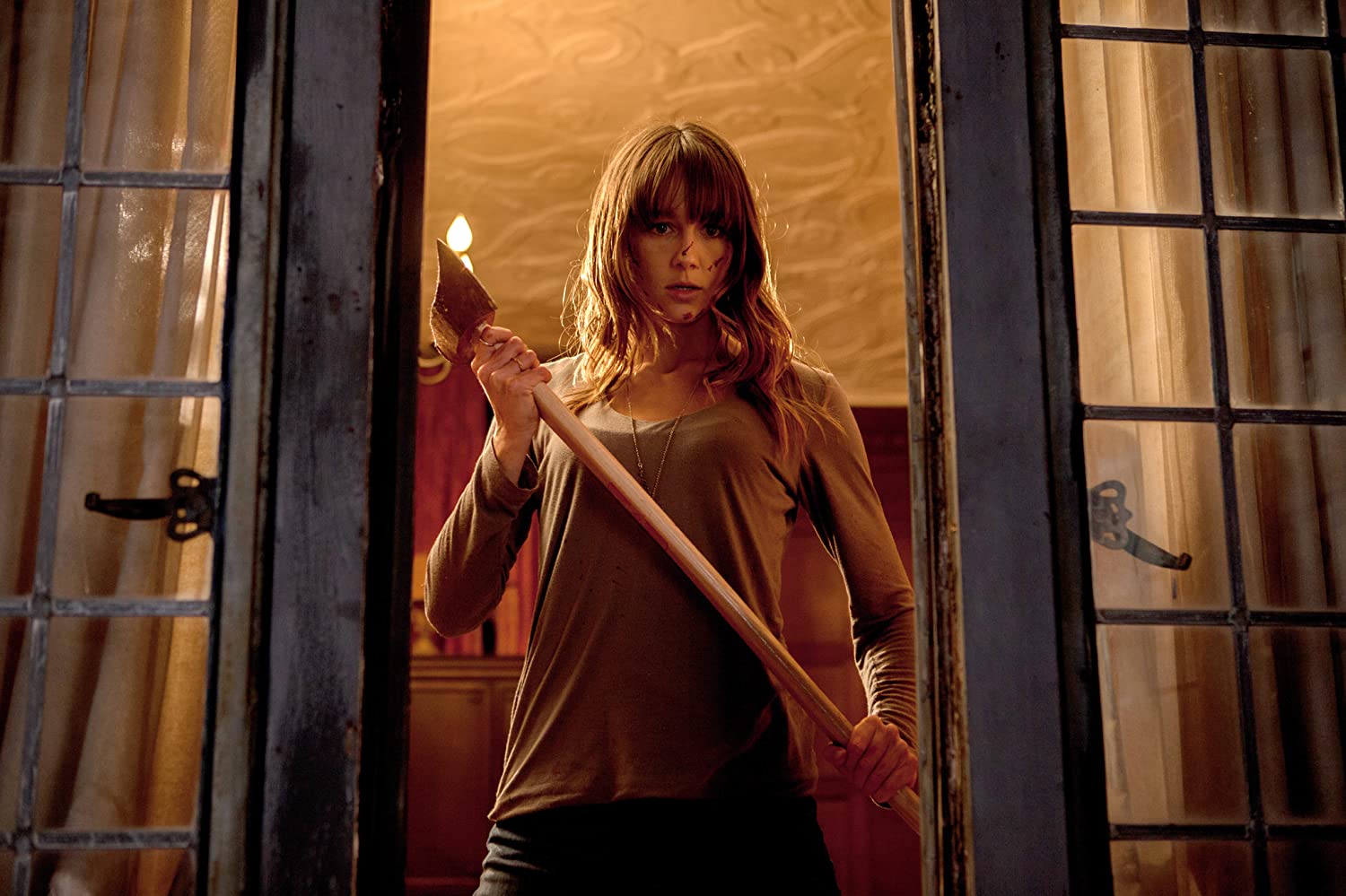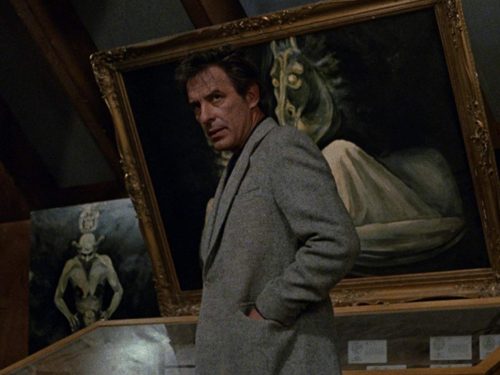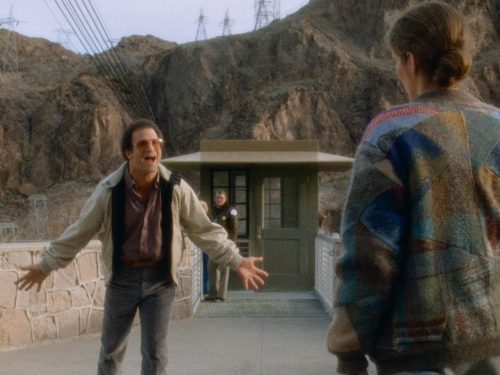Adam Wingard’s You’re Next upends nearly every horror trope imaginable, making for an impossible to replicate home-invasion slasher
The year is 2011. Scream has been skewering slasher films for a decade, haunted house films have received glossy upgrades, found footage films have sufficiently outstayed their welcome, and remakes reign. The idea of a fresh horror film felt difficult to imagine.
Enter You’re Next. Just a year before The Cabin in the Woods became the go-to answer for meta-horror, You’re Next mastered something equally self-aware, intelligent, and subversive. However, You’re Next deserves to outlive Cabin in the Woods in the annals of horror history simply because it is a more effective horror film. Where Cabin in the Woods veers quickly into comedy territory, emphasizing levity over scares, You’re Next stays relentlessly scary from beginning to end. Further, You’re Next utilizes the meta angle to pay intelligent, surprising homage to many subgenre classics before it.

Much like Hitchcock’s Psycho, You’re Next opens on a post-coital couple. In both cases, there is an air of impropriety and secrecy about the relationship. In the case of You’re Next, the age difference between Larry Fessenden and Kate Lyn Sheil suggests something askew. We’re intrigued by the clandestine affair in front of us. While Larry showers, we follow Kate downstairs as she turns on music and makes a drink. We naturally assume she is the film’s protagonist; she’s the first person with whom we’ve identified and cared about her emotions (dissatisfaction, disconnection, aimlessness). Then, she sees a figure outside the window in a white animal mask, and that is the last time we see her alive. While the mislead is briefer than Janet Leigh’s 30-minute preamble in Psycho, the feeling of misdirection and the suddenness with which she meets her violent demise make it very clear this will be a vicious, mean film. As the writing on the window in blood suggests, anyone could be next.
We then join a middle-aged husband and wife arriving at an imposing, isolated country home. Upon their arrival, the door is already unlocked, the furniture is covered in sheets, and there are sounds of footsteps upstairs. It’s a classic combination that immediately suggests something is askew with the house. The husband goes upstairs to find the source of the sound when his son appears behind him. It’s the source of a well-earned jump scare that also relaxes the tension momentarily. The father and son leave, but the upstairs door he was approaching slowly creaks open further. The unease introduced in their arrival proves warranted.

Dinner parties in horror films never go well. The booze-fueled mixture of friends, family, and strangers attempting civility is a recipe for tension and disaster. In the case of You’re Next, we have the double-whammy tension of obvious family dysfunction. The mother is inexplicably sad and unstable, the older brother bullies his insecure younger brother, the black sheep brother reluctantly joins with his cold girlfriend, and the people-pleasing daddy’s girl sister seems to get on everyone’s nerves. We don’t know where all this tension is heading, but it’s bound to be an unpleasant meal.
While the opening scene prepares us for the eventuality of a home invasion, we don’t know when and how the chaos will begin. Many tropes of the subgenre have quietly revealed themselves, primarily the “Chekhov’s gun” showing us many potential weapons throughout the house (including the infamously well-utilized blender). Home invasions also tend to begin with a startling act of violence — something that rapidly shifts the narrative from “business as usual” to a dangerous situation. This shift often functions as the inciting moment of these films, and You’re Next doesn’t disappoint with its almost-immediate arrow through the window disrupting a petty fight. The characters slowly realize what has happened, and then all hell breaks loose. Smart home invasion films also toy with conventional family dynamics. Male characters who at first appear strong and in-control become emasculated and panicked in the face of actual danger. Joe Swanberg’s bullying big brother character adopts this trope after taking an arrow to the shoulder and becoming little more than a whining piece of excess baggage. Conversely, an apparently weak female character can often surprise with their strength and effectiveness in fighting back.
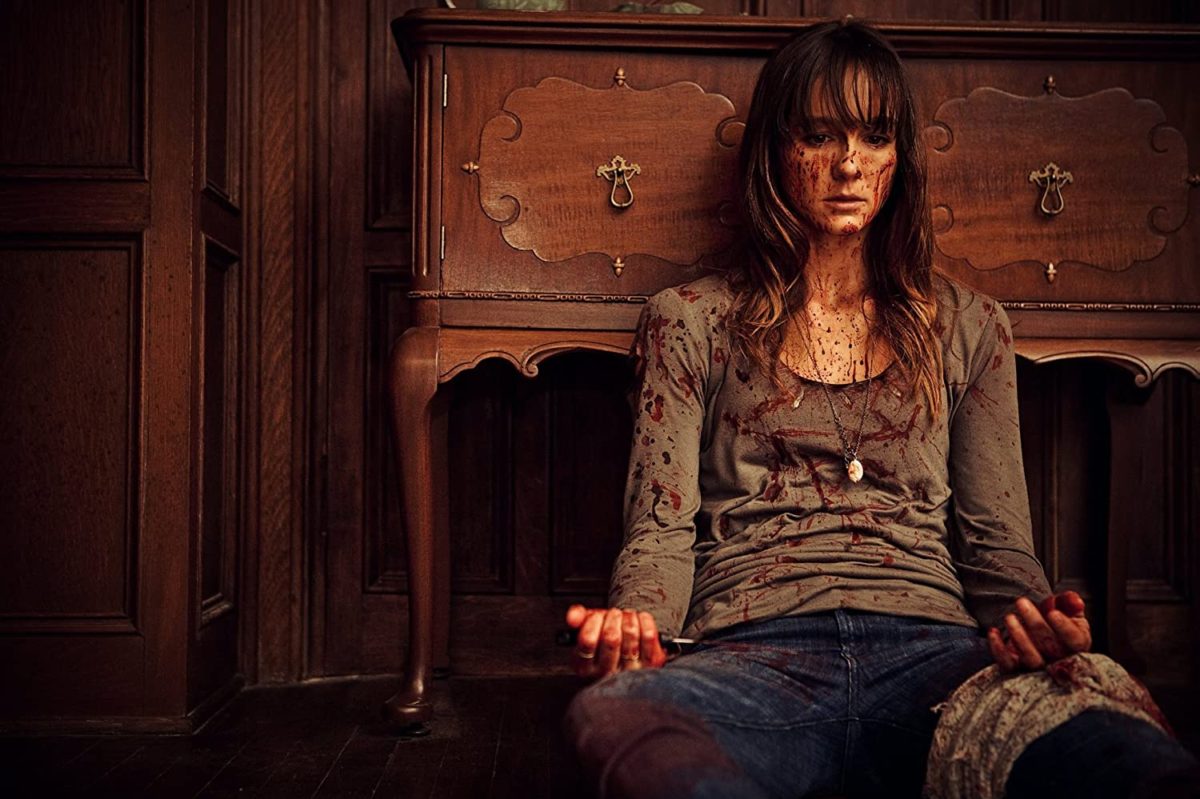
Of the five female characters, Erin (Sharni Vinson), the new girlfriend who the family has not previously met, appears to be the most passive and soft-spoken member. She’s so eager to belong in her boyfriend’s family that she willingly takes on mundane tasks like going to the neighbor’s to ask to borrow for milk. Though the film drops subtle hints of her “unconventional” upbringing (which, it turns out, took place in a survivalist compound), it’s still a surprise to see her shift personas and kick into action the moment things get real. Erin ranks among the most badass final girls, and horror protagonists in general, for her combination of grit, savvy, and no-holds-barred aggression towards anyone that gets in her way.
So often, the home invasion narrative is effective because of the cruel pointlessness of it all. The killers may choose their victims at random, and the dumb luck of this inexplicable chaos cuts deep. The Strangers (2008) eloquently addresses this with two lines of dialogue: “Why us?” “Because you were home.” We’re used to the killers being random, driven by violence and maybe the desire to rob (wealthy homes tend to be targeted often), but rarely is there a larger reason explained. So, when we find out these invaders were commissioned by the black sheep sibling and his girlfriend, we realize how many aspects of the story were carefully planned ahead of time. Each family member’s weaknesses were effectively exploited to ensure their demise. Every gamble — from relying on the mother’s tendency to retire to her room alone to betting on the people-pleasing sister’s need to prove her athleticism — worked out as predicted; however, the family had not yet met Erin, allowing her to pull the ultimate coup as a wildcard character.

The cheeky inclusion of well-known horror icons can so often provide an eye-rolling bit of self-reference, but You’re Next challenges this cliche with cameos in surprising scenarios. Eighties scream queen Barbara Crampton plays a Hitchcockian ice queen a la Tippi Hedren or Kim Novak, but doesn’t last as long as we’d expect from her iconic status. Nineties indie horror fixture Larry Fessenden faces an even briefer appearance in the opening scene, and Adam Wingard’s fellow mumblegore filmmaker Ti West is knocked out quite suddenly after introducing himself as a mildly successful filmmaker. Joe Swanberg similarly upends expectations of his hip mumblecore personal from the early aughts by quickly devolving into an insecure whiny manchild. The winks span generations and provide crafty distractions and surprises, allowing new icons a unique chance to shine.
With all these elements combined, You’re Next works particularly well for horror fans who think they’ve seen it all. What even the most diehard fans could not predict was the sheer effectiveness and joy of combining so many tropes in new ways. The combination would be near-impossible to replicate, which makes You’re Next an iconic and strangely under-appreciated horror masterpiece.
Find more October Horror 2020 here:
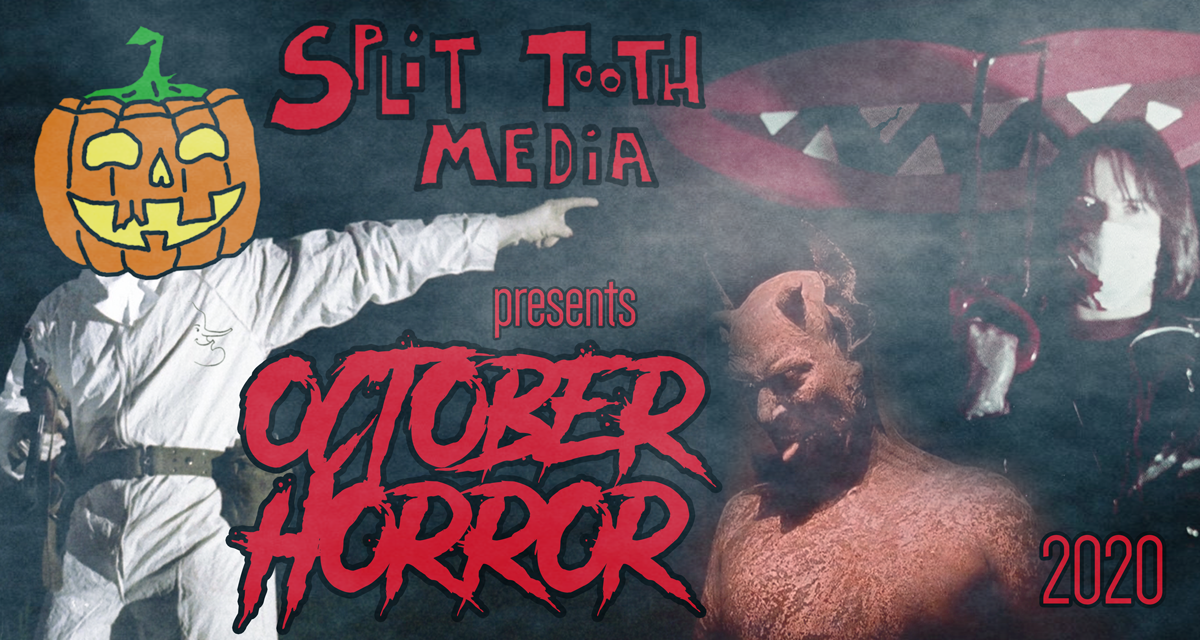
Follow Split Tooth Media to stay up to date with all things October Horror
(Split Tooth may earn a commission from purchases made through affiliate links on our site.)

